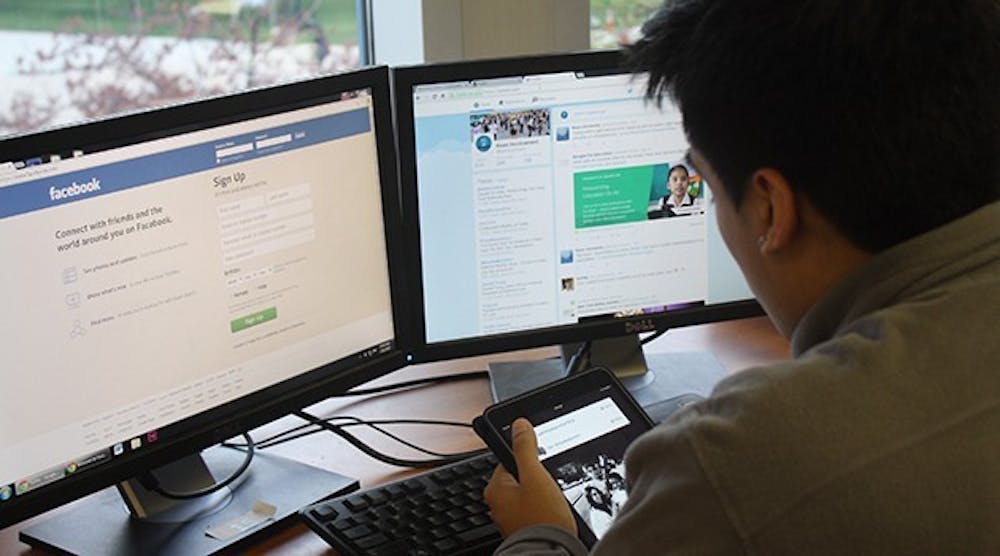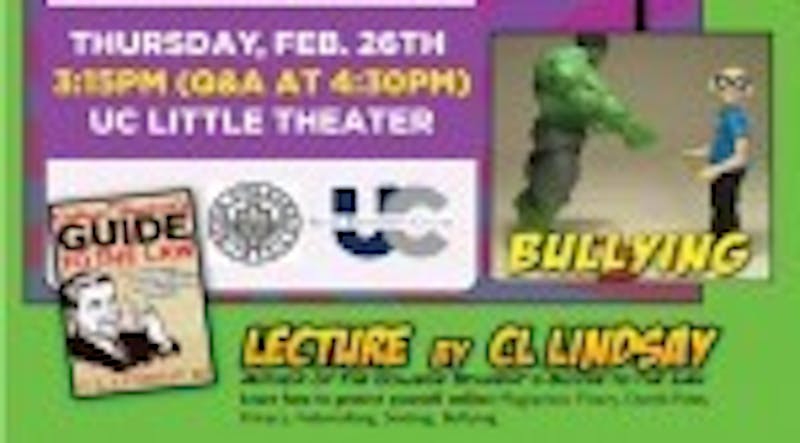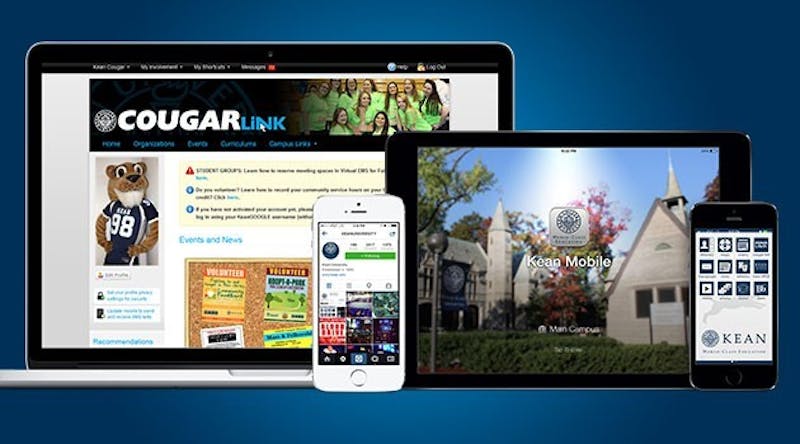Creative Marketing Specialist Lucas Hernandez multitasks through various forms of social media
Photo Credit: Gabby Vicedomini
Every day, people everywhere stare blankly into their devices for hours on end, missing out on the reality of the world around them. Facebook, Twitter, Instagram, and various other social networking platforms have completely consumed our daily lives. Titles such as “Social Media Coordinator”, “Media Analyst”, and “Blogger”, are a few of the many new career paths offered in 2015. The big questions are: is this good or bad for society? And what does this mean for the future?
Kelsey Moran, a sophomore Public Relations major at Kean University, believes that – ultimately – social media is a great advantage and a useful tool for the people of the modern world.
“Social media does cause a lot of problems, but it’s also a way to expand and connect with people that would normally be out of one’s reach without some other means of meeting people,” says Moran.
The dawn of the age of social media began in 1999 when the pioneers of blogging were introduced: Xanga, Blogger, and LiveJournal. All three paved the way for their successors such as Friendster (2002), Myspace (2003), and finally Facebook (2004). Over ten years ago, these sites were introduced as hobbies but today, they have become a way of life.
As with most things, social media has its pros and cons. On a positive note, the social media craze has created new jobs, made it easier to stay connected with family and friends, and given us all the opportunity to constantly be in the know. Sites such as LinkedIn provide people with the opportunity to network professionally and branch out to further their careers. Another interesting benefit of this digital age is that police departments are avid users of Twitter and Facebook, searching through hash tags and posts to uncover information in the midst of an investigation.
“I’ve learned a lot in my three years at Kean,” starts Kristie Casole, a junior Criminal Justice major. “But the most prevalent is the use of social networking in the justice system. Posts can be used as evidence, alibies, or assist in the general judgment of character of those in question. Nothing is ever truly gone from the internet, there is always proof.”
With that being said, one negative aspect of the internet is that once something has been uploaded, it can never truly be deleted. Another crucial problem with the sanctity of social media is just that – it doesn’t exist. In cyberspace, there is no such thing as privacy. With just a few key strokes and clicks, someone could access anyone’s public birth record, discover your mother’s maiden name, and find embarrassing photos from the past. That photo of you gracefully holding a red Solo cup? Potential employers could easily unveil that with one quick Google search. It isn’t very shocking that laws against stalking in the United States became more prevalent with the boom of the World Wide Web. Other major issues with social media and the internet are the lack of face-to-face communication, a constant source of distraction, and cyber bullying.
Case studies have been done worldwide on the effects of social media. One study done at North Eastern University (NEU) questions whether or not people are becoming too dependent on social media and if that’s entirely a bad thing or not. Brooke Foucault Welles, assistant professor of communication studies at NEU argues that what we’re currently dealing is for the greater good, while studies at the University Of Chicago: Booth School Of Business state that extreme use of Twitter and Facebook is just as addicting as smoking cigarettes.
“People will continue to adapt their behaviors as new tools become available, but fundamentally, communication practices and the ways in which we relate to one another will stay the same,” says Foucault Welles.
Regardless of the good outweighing the bad or vice versa, one thing is undeniably true: social media has become the largest epidemic of the last 25 years. It is undeniably everywhere and universities across the country have begun to offer bachelor degrees in the subject. Our very own Kean University recently introduced a minor in the field of study; complete 18 credits from the approved list of requirements and consider yourself a social media minor. For more information regarding the minor, visit the fourth floor of the Center for Academic Success (CAS) where the School of Communication, Media, and Journalism is housed.
Social media has made leaps and bounds since its inception in the late 90s – no one in their right mind would have been able to predict the impact it has made. Is it safe to assume that it will continue to develop and shape the future of human interaction? Absolutely.





